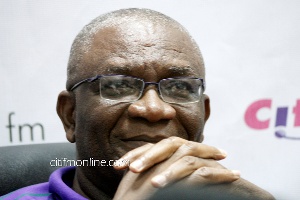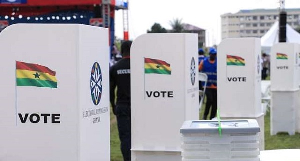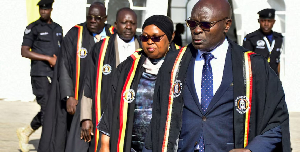In 1965, Rabbi Joseph Soloveitchik published “Lonely Man of Faith”, a philosophical essay that courses through dense questions of life and the moral and ethical framework upon which the values and virtues of modern civilization were built. Soloveitchnik posits that within the human nature are two opposing elements. The first element seeks to go out there and make a difference, accomplish things and accumulate external victories.
The second element is reserved, introspective, altruistic and is driven by a strong moral compass. Soloveitchnik calls the first element “Adam I” and the second element “Adam II”. Adam I is often the appetizing imagery and narratives we read in glossy magazine spreads. Adam II is unmoved by the accolades of this world and lives in accordance with a transcendent truth. David Brooks, the famous New York Times op-ed columnist, in a commentary captured the two Adams aptly: While Adam I wants to conquer the world, Adam II wants to obey a calling to serve the world.
This Parliamentary memoir of the late Emmanuel Kyeremanteng Agyarko (MP, Ayawaso West Wuogon) will situate his performance as a Legislator and a representative of the people of Ayawaso West Wuogon within the context of Soloveitchik’s theory.
Emmanuel Kyeremanteng Agyarko was born on December 10, 1957 at Odumase-Krobo in the Eastern Region. He was an alumnus of the Kwame Nkrumah University of Science and Technology (KNUST). He was a Pharmacist by profession and a member of the ruling party, the New Patriotic Party (NPP). He worked at the Korle Bu Teaching Hospital as a Pharmacist for a short while before moving on to work at the Narcotics Control Board as Deputy Executive Secretary for a year. Subsequently, he went on to work as Chief Executive of the Foods and Drugs Authority for seven years. He served as MP for Ayawaso West Wuogon from 2012 and was re-elected for a second term until his shocking demise on Wednesday November 21 at age 60.
Had we avoided a scattershot interpretation of Article 108 of the 1992 Constitution, the late MP could have been a champion of many human-interest Bills.
Article 108 states that:
Parliament shall not, unless the Bill is introduced or the motion is introduced by, or on behalf of, the President –
(a) Proceed upon a bill including an amendment to a bill that, in the opinion of the person presiding, makes provision for any of the following-
i. The imposition of taxation or the alteration of taxation otherwise than by reduction;
ii. The imposition of a charge on the consolidated fund or other public funds of Ghana or the alteration of any such charge otherwise than by reduction; or
iii. The payment, issue or withdrawal from the consolidated fund or other public funds of Ghana of any moneys not charged on the Consolidated Fund or any increase in the amount of that payment, issue or withdrawal; or
iv. The composition or remission of any debt due to the Government of Ghana.
As a consequence of the prevailing parliamentary practice, the many insightful and intellectual input by the late MP into matters of legislation and public policy are buried in the Hansard as mere contributions. On health, road accidents, climate change, illicit drugs, science and technology, Mr. Agyarko spoke; not ordinarily or for the sake of having it in the records that he was not a silent MP. On these matters, he spoke with conviction drawing from his experiences as a Pharmacist, a Public Servant and a believer in the power of science, technology and innovation to transform economies.
Any nation that had seen some development, the so-called first world country (developed countries) have all done so by riding on the back of science, technology and innovation. And science, technology and innovation is cost-cutting.
The issues of climate change and its impact on agriculture, the weather and everything has become—I would want to believe—the most topical thing in the world. Therefore, the imperatives are that if we want to move from where we are today as a nation to the Utopia that all of us are looking forward to, then the nation must give a lot of attention and focus to science and technology.
And on occasions he had to walk on the slippery rope of partisan politics, he did so leveraging facts and anecdotes without being scurrilous at his colleagues in opposition. On this score, this is what former President John Dramani Mahama had to say about his parliamentary conduct: Politics may divide us on ideological lines, during debates and arguments, but Emmanuel Agyarko’s personality and conduct in the political space, always exemplified the gentleman that he was.
Mr Agyarko stood out as a chief proponent of a vibrant and competitive local pharmaceutical industry. He was unequivocally opposed to legislations and policies that sought to narrow the national vision on the health sector and cap the entrepreneurial capabilities of the Ghanaian. Harsh taxes on small local businesses, in his view, are one major means a country can discourage entrepreneurship and make its economy a primary hub for imports.
Today there is a popular place in Accra called Okaishie. It is a testimony and testament of what the Ghanaian entrepreneur in the import of Pharmaceuticals can do…I will speak on the Kinapharmas—I will speak on the Ernest Chemists and I will speak on the Kamas. They started off as traders and because they had the opportunity to build capital, today they have graduated from just being importers and traders to manufacturers. If we do not create this opportunity, Mr. Speaker we will just be left at the low echelons of this and the real danger is that if we do not do something about it one day, our children will become hewers of stone and drawers of water in our land.
The late MP also held fast to the belief that the business of government is not to do business, but to regulate. And in an era where everyone wants to cut corners, do little or shoddy work and draw big salaries or get paid for no work done, the regulatory function of government cannot be overemphasized.
We have become a country where everybody wants a shortcut and we would not stick to the regulations. We have a challenge with regulations in this country.
The business of government must act consistently [sic] in all facets of our national lives to ensure that the regulations are followed.
Performance in politics is everything. It constructs and entrenches a positive perception of oneself and one’s political party within the psyche of the masses. Our part of the world has never run dry of political performances mostly expressed in the form of promises and intentions. Though Mr Agyarko was a staunch member of the ruling party (NPP) that promised Ghanaians over 300 things in its 2016 manifesto and is struggling to fulfill all of them, he puts action over rhetoric and intention combined.
One can make a very fine speech, but it is not just the words but it is one's actions.
I have stated here that one could have the best intention but intention alone does not drive a nation…intention alone does not drive the economy.
I find it difficult to understand how an individual in an emergency situation would go into a hospital and he would be told that there are no beds, says a baffled Emmanuel Agyarko on the floor of Parliament on 12 June, 2018. Whilst he was expressing shock at the inability of a 60-year old State to provide hospital beds for its citizens, a high-profile member of his party was hard at work contracting a loan facility of US$11million to secure 275 buses for party purposes in a bid to win the chairmanship slot of the party.
Perhaps in Mr Agyarko’s nature, Adam II overcame Adam I. We saw an MP who attended to the needs of his constituents with compassion and genteel act of service. In his public silence on the many avoidable controversies that plagued his party, he spoke loudly on his personal resolve never to work himself into a frenzy trying to defend the indefensible. This life takes us nowhere, read his last post on Facebook. This is Adam II in him speaking and challenging us to take a step further and ask ourselves: What are we here for?
The author, Ernest Armah is the Director of Research and Content Development at Odekro PMO. Email: nii@odekro.org
Opinions of Monday, 10 December 2018
Columnist: Ernest Armah















